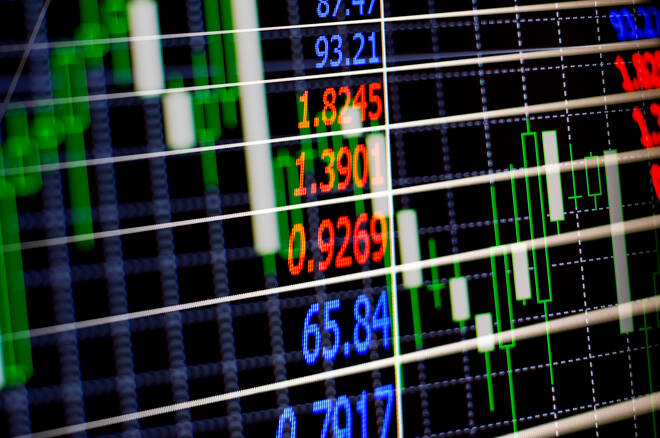Advertisement
Advertisement
European Equities: A Week in Review – 15/08/20
By:
It was a bullish week, in spite of a late pullback, as sentiment towards the U.S COVID-19 stimulus package weighed. Geopolitics will likely remain key this week.
The Majors
It was a relatively bullish week for the European majors in the week ending 14th August. The DAX30 rose by 1.79%, with the CAC40 and EuroStoxx600 ending the week with gains of 1.50% and 1.24% respectively.
For the European majors, 3 consecutive days through the first half of the week delivered the upside.
From the weekend prior, Trump’s signing of executive orders provided support early in the week, along with positive economic data.
Further talk of COVID-19 vaccines also supported risk appetite early in the week, with Russia joining the race to deliver a COVID-19 vaccination.
Later in the week, however, the markets brushed aside economic data, with a lack of progress on Capitol Hill testing risk sentiment.
COVID-19 numbers were also on the rise once more, reigniting fear of an extended 2nd wave of the COVID-19 pandemic. Parts of Europe reported jumps in new cases to sound the alarm bell.
The Stats
It was another busy week on the Eurozone economic calendar.
In the 1st half of the week, August’s ZEW Economic Sentiment figures for Germany and the Eurozone were in focus.
Germany’s ZEW Economic Sentiment Index jumped from 59.3 to 71.5, with the Eurozone’s rising from 59.6 to 64.0 in August.
Mid-week, the Eurozone’s industrial production figures provided support, with a 9% rise coming off the back of a 12.3% jump in May.
At the end of the week, the Eurozone’s 2nd estimate GDP numbers for the 2nd were also in focus.
According to the latest figures, the Eurozone’s economy contracted by 12.1% in the 2nd quarter. This was in line with 1st estimates and forecasts. Year-on-year 2nd estimate GDP was also unchanged at -15%.
At the end of the week, June trade figures for the Eurozone were also positive, with the trade surplus widening from €9.4bn to €21.2bn. The widening failed to support the European majors on the day, however.
July’s finalized inflation figures for France, Germany, and Spain had a muted impact in the week.
From the U.S
It was also a positive week on the economic data front.
Key stats the weekly jobless claims, retail sales, and consumer sentiment figures.
In the week ending 7th August, initial jobless claims fell back from 1,191k to 963k, to mark a 2nd consecutively weekly decline.
Consumer sentiment and expectations improved marginally, with core retail sales and retail sales also on the rise. The gains were relatively modest, however, providing limited support to the European majors.
From Elsewhere
Economic data out of China disappointed at the end of the week, leading to a bearish end to a bullish week. Retail sales declined by a further 1.2% in July, coming up short of a forecasted 0.1% increase. Industrial production also fell well short of forecasts, increasing by 4.8%, year-on-year. Economists had forecasted a 5.10% rise.
The Market Movers
From the DAX, it was a particularly bullish week for the auto sector. Continental surged by 14.47% to lead the way, with BMW gaining 4.76%. Daimler and Volkswagen saw more relatively more modest gains of 3.43% and 3.74% respectively.
It was a relatively bullish week for the banking sector. Commerzbank rose by 0.27%, with Deutsche Bank ending the week up by 2.69%.
From the CAC, it was a bullish week for the banks. BNP Paribas and Credit Agricole rallied by 3.33% and by 4.02% respectively. Soc Gen led the way, however, with a 5.79% gain.
It was also a bullish week for the French auto sector. Peugeot rallied by 4.93%, with Renault gaining 7.38% following last week’s 13.46% breakout.
Air France-KLM bucked the trend, falling by 0.57%, while Airbus ended the week up by 4.05%.
On the VIX Index
It was a 3rd consecutive week in the red for the VIX, marking an 8th week in the red out of 9. Following on from a 9.20% slide from the previous week, the VIX fell by 0.36% to 22.05 in the week ending 14th August.
The S&P500 and the NASDAQ ended the week up by 0.64% and by 0.08% respectively, while the Dow rallied by 1.81%.
While economic data was skewed to the positive, a lack of progress on Capitol Hill to deliver the COVID-19 stimulus package weighed.
The Week Ahead
It’s a quieter week ahead on the Eurozone economic calendar.
In the 1st half of the week, the Eurozone’s finalized inflation figures for July are due out. We would expect the markets to brush the numbers aside, however.
The focus will shift to August’s prelim private sector PMIs for France, Germany, and the Eurozone, due out on Friday.
Following particularly disappointing GDP numbers for the 2nd quarter, the markets will need to see private sector activity continuing to improve.
From the U.S
It is a relatively busy week ahead, with the weekly jobless claims and private sector PMIs to provide direction in the week.
Away from the economic calendar, the markets will need to monitor chatter from Washington and Beijing. The U.S stimulus package, and the latest COVID-19 numbers will also need monitoring.
Updates from trade talks between the U.S and China from the weekend will also need monitoring.
About the Author
Bob Masonauthor
With over 28 years of experience in the financial industry, Bob has worked with various global rating agencies and multinational banks. Currently he is covering currencies, commodities, alternative asset classes and global equities, focusing mostly on European and Asian markets.
Advertisement
